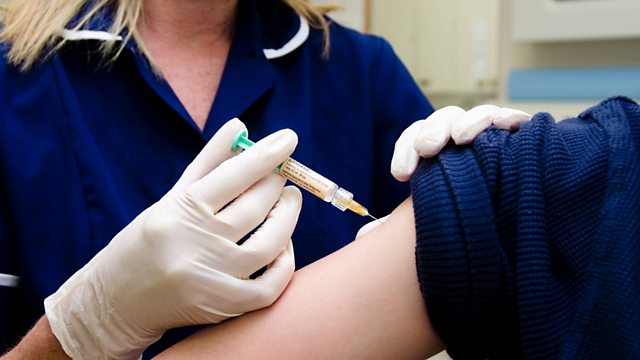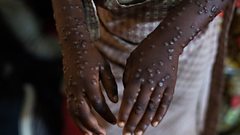Cervical cancer rates massively reduced by vaccine, UK report
More than 100 countries now use the human papillomavirus vaccine and 90% of cervical cancer deaths worldwide now occur in poorer countries where there's little screening.
New research in England has shown that cervical cancer rates are 87% lower in women who were offered vaccination against human papillomavirus (HPV) when they were between the ages of 12-13 than in previous generations. This is the first direct evidence of prevention of cervical cancer using the vaccine, Cervarix. More than a-hundred countries now use the human papillomavirus vaccine. Ninety percent of cervical cancer deaths occur in poorer countries, where there's little screening.
Kate Sanger is the head of policy and communications at Jo's Cervical Cancer Trust, a UK based cervical cancer charity:
βItβs incredibly positive to see really solid evidence of the success of the HPV Vaccine in reducing cervical cancer cases and thatβs going to lead to lives saved in the future. In the UK itβs been offered since 2008. That means that girls who were offered it first are now about 25, 26 and are coming into the cervical screening programme for the first time.β
βThe optimal age [to receive the vaccine] is around 11 or 12 years old and thatβs when the school-based programme vaccinates both girls - and boys now - because itβs most likely there wonβt have been exposed to the HPV, thatβs when the body is most receptive to the vaccine and make it as effective as possible.β
(Pic: Teenage girl is vaccinated against diseases caused by the human papillomavirus (HPV) such as cervical cancer; Credit: Science Photo Library)
Duration:
This clip is from
More clips from Newsday
-
![]()
Liam Payne: Fans mourn death of One Direction singer
Duration: 03:35
-
![]()
Sudan's footballers provide 'joy amongst the chaos'
Duration: 04:00
-
![]()
Hurricane Milton: The residents deciding to stay, or evacuate
Duration: 02:59
-
![]()
Mpox spreading rapidly in Burundi
Duration: 03:21






